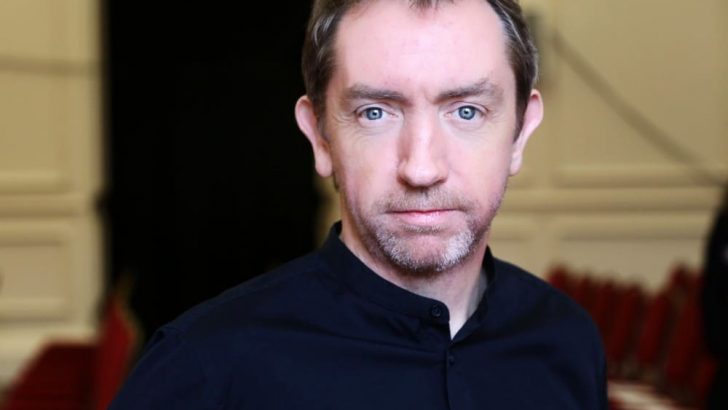While my late friend and revered music critic of the Irish Independent, Mary MacGoris, maintained danger lurked around every corner, I believe things are looking up. As Fred Astaire sang in the Gershwin brothers film A Damsel in Distress, “bitter was my cup/but no more will I be the mourner/for I’ve certainly turned the corner/oh, things are looking up”.
Another hit number was Nice Work if You Can Get It, in which Astaire had a dance routine playing a drum kit! Sadly George Gershwin died from a brain tumour shortly before the film opened in November 1937.
But why do I feel “things are looking up”? Well, for one the RTÉ NSO has returned to the National Concert Hall for a series of 7pm Friday events. Without an audience and having its players limited to 37, the concerts are being streamed live on www.rte.ie/culture and broadcast on RTÉ Lyric fm.
Under David Brophy, last week’s programme opened with Mendelssohn’s effervescent overture The Midsummer Night’s Dream and ended with Beethoven’s genial 4th Symphony.
Dating from 1806 and dedicated to Silesian Count Franz von Oppersdorff, the symphony was first performed at the Viennese palace of another patron, Prince Franz Lobkowitz. The public première came on April 13, 1808. Squashed between the epic 3rd and 5th Symphonies, the piece really doesn’t get the airings it deserves.
Last week’s soloist was the NSO’s ever mellifluous principal flautist Caitríona Ryan in Mozart’s K 314 Concerto. Whatever about the composer disliking the flute – “an instrument I cannot bear” – he certainly wrote beautifully for it.
Advances
The centrepiece of tomorrow’s (Friday, September 18) programme is Mozart’s Clarinet Concerto written a few weeks before the composer’s death on December 5, 1791. He originally intended the work for basset horn and its virtuoso player Anton Stadler, but advances in the clarinet’s design changed Mozart’s mind. Tomorrow’s soloist in the resultant masterpiece is John Finucane, under conductor Gavin Maloney.
The rest of the programme has Bartók’s engaging Romanian Folk Dances and Mendelssohn’s Italian Symphony. Completed in January 1833 following the composer’s sojourn in Italy, the work was first performed in a London Philharmonic Society concert in March that year. Particularly appreciated in England, Mendelssohn was Queen Victoria‘s favourite pianist and composer.
Next week’s concert (Friday, September 25) brings a change of scene with David Brophy conducting a number of works by Irish composers past (Arthur Duff and Micheál Ó Súilleabháin) and present (Dublin’s John Kinsella and Belfast’s Neil Martin).
The flute soloist in Ó Súilleabháin’s Oileán will be versatile Mark Redmond who changes to uilleann pipes for Ó Súilleabháin’s Bean Dubh an Gleanna and Martin’s arrangements of the traditional The Fairy Queen and The Humours of Ballyloughlin.
Away from the capital in another Beethoven 250th celebration, Finghin Collins plays the Op 57 Appassionata Sonata and the last two-movement Op 111 in St Mary’s Church, New Ross on Sunday, September 27 at 3pm. Young Cork pianist Ellen Jansson opens the afternoon recital with the Op 2 No.3 Sonata but, with audience restrictions, it may already be a case of ‘returns only’. Booking at St Michael’s Theatre on 051 421244.


 David Brophy
David Brophy 